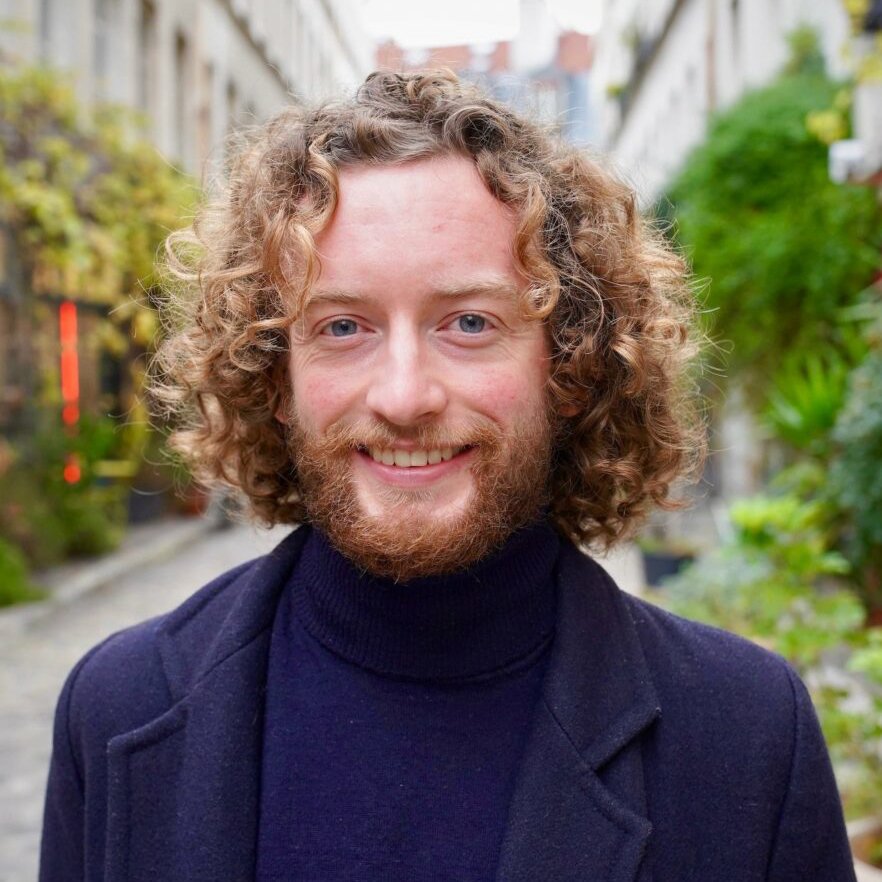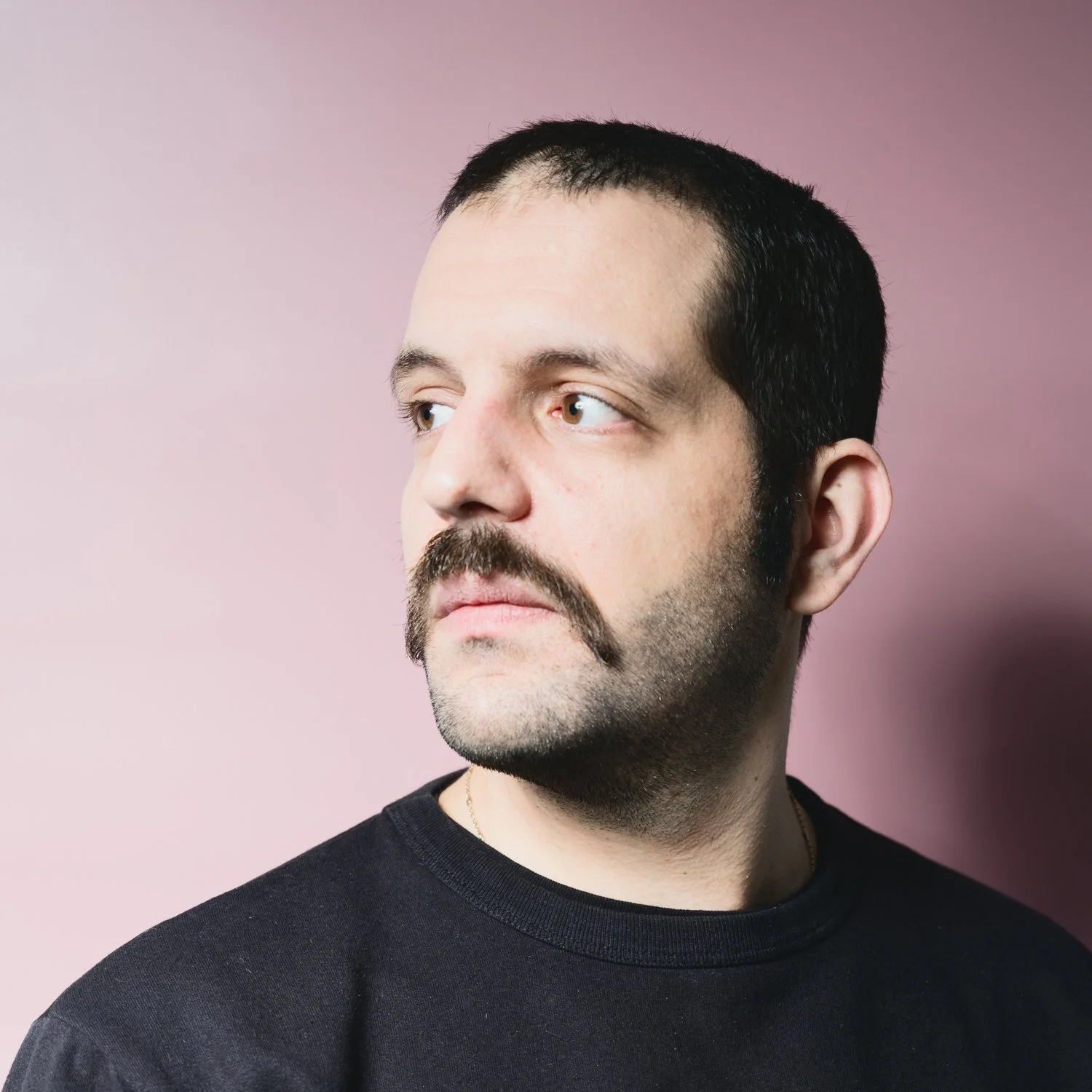Investigating Paris’ Olympics Evictions
JULY 16, 2024
The Reporter’s Notebook is our monthly interview series with Dial contributors. To receive these conversations directly in your inbox, sign up for our newsletter.
✺
A conversation with Phineas Rueckert, whose article on the acceleration of evictions in Paris ahead of the Olympic Games was published in our Sports issue.
In preparation for hosting the Olympic Games this summer, Paris has stepped up its plans for urban renewal. The city has added a new metro line, restored historic buildings and resurfaced roads. But authorities have also ramped up social housing evictions and shut down squats without offering sustainable alternatives to evictees, displacing thousands of people. Dial intern Lydia Tadross Marks spoke with Phineas Rueckert about the effects of urban renewal on Paris’ vulnerable populations, and how the Olympics have served — once again — as an accelerator for gentrification.
THE DIAL: The housing shortage in and around Paris has been reported on extensively over the past few years, but the evictions you reported on in this piece seem last-minute in light of the Olympics. Could they have been prevented?
PHINEAS RUECKERT: Paris had been dealing with a housing crisis for a long time. And at least for the past decade, it’s gotten worse every year. Homelessness has risen and social housing stock has gone down. Policies have been put in place to make it harder to squat abandoned buildings. So this is nothing new. But a lot of people thought the Olympics could be a catalyst for addressing the problem head on and actually create more housing — something that has not happened.
The amount of new housing built ahead of the Olympics has been minimal, and there’s certainly been an acceleration in evictions over the past year and a half. It’s not only related to the Olympics — President Emmanuel Macron’s government has been very aggressive on housing. The main idea has been to evict, evict, evict, and then close down the spaces that could potentially be converted into social housing. But the Olympics provided a situation where you can justify doing that much more quickly and with a specific end date in mind. And then that exception becomes the rule.
THE DIAL: For your piece, you spoke with several people being affected by displacement. Was it difficult to get people to talk to you for the story, especially as many of them are at-risk immigrants?
PR: So, yes. Most of the people I spoke to didn't want to be referred to by their names. Some of them are undocumented, some of them are documented but in irregular situations. It’s also very hard to stay in contact with them, because they are in situations of such flux and instability. They're focused on getting food, finding somewhere to shelter for the night, getting help with their paperwork from associations.
I'd reach out to someone who has been evicted, and I wouldn't hear back for a week, and it would be very hard to plan an in person meeting. So a lot of my follow-ups happened by voice messages and WhatsApp calls.
It’s also hard for them to see the point in spending time with a journalist — and I get this. One of the biggest challenges I face is people saying, you writing about my personal situation is not going to change it at all. They don’t see the point in speaking about it.
THE DIAL: In your writing, you tend to use person-first language, like “people experiencing homelessness” or “people with a migration background.” In French, person-first language is uncommon: it’s very normal for politicians to say les arabes, les SDF (“sans domicile fixe”), etc. Is that an intentional choice for you? Why?
PR: I think France is slowly coming around to questions like this. It has already made strides on gender pronouns, for example. But the language around migration is still divisive. People who are very critical of immigration, for example, will use the word “migrants,” which implies that coming to France was a choice rather than a necessity. But people who work with these communities tend to refer to them as “exilés,” exiled people. The term reflects the idea that these people can’t go back to their homes and have come to France because they see it as a country that supports human rights (or was a colonial power in their home countries).
The term “squat” is also somewhat political, and has been taken over by the right. The word is arguably a negative one; it invokes the idea of an infringement on private property. You could instead call it “an abandoned structure that’s being inhabited by exiled people” — that formulation is more understanding of the situation that these people are experiencing.
THE DIAL: More generally, how do you find reporting in English versus French?
PR: I often use a mix of English and French when I report. One of the people I was in touch with regularly for this piece would switch back and forth between English and French, neither of which is the language she grew up speaking. She would send messages in French, but then we would talk on the phone in English. So it is very helpful, obviously, to be able to code-switch between the two languages.
A big challenge when reporting on topics of migration is that most people are most comfortable in Arabic, or even a local dialect from their home country. So I am in touch with translators. For this story, I worked with someone who told me he had experienced homelessness himself and was in the same situation as many of the people we were talking to, so he could really relate and understand. That was quite shocking to me.
THE DIAL: You report that these evictions are “accelerating [Paris's] processes for urban renewal — and displacement.” What does "urban renewal" look like for the city? What is the end goal? How does this impact the areas surrounding Paris?
PR: I’d say there are two things happening at the same time with the gentrification of Paris. There’s this acceleration of evictions — which is mostly what this piece is about — where the city is clearing up spaces to make way for capital, for investments. That’s the short-term process that’s taking place. And then there’s the larger project of urban renewal, of turning Paris into a 21st-century capital city.
The plan is to develop the suburbs with specific economic activities and to connect them by very efficient metro systems, which in itself is not a bad thing as these areas have typically been very poor and suffered from poor services. The idea is to have more social mixing, as they call it.
But what happens in practice is that higher-income young couples or young families come into neighborhoods that have been traditionally work class, driving up prices. Schools and housing are remodeled to attract new people, and those who have been living there for decades are suddenly priced out.
It’s a classic problem of gentrification. It’s not just Paris. The goal of better connecting these suburbs, which traditionally have been ignored by both the left and the right, is a good one. But it does lead to accelerated gentrification around these new hubs.
THE DIAL: You report that the Olympics have time and again failed the poorest residents of host countries. How does what’s happening in Paris compare to the displacement of people ahead of the Games in places like Rio, Atlanta and Beijing?
PR: In Paris, depending on how you define it, authorities displaced several thousand people. That’s still a significant number but nothing compared to Rio, for example, where the city ended up displacing considerably more people because it was building a lot of new infrastructure for the Games. The city was basically starting from scratch, whereas Paris already has some stadiums and a solid metro system. Paris has been developing the geographic edges of the city, which has meant evicting or displacing people there rather than across the city as a whole. The impact is less drastic.
THE DIAL: French President Emmanuel Macron has consistently argued against identity politics and instead pushed for assimilation and societal cohesion. You noted that the majority of people being displaced for the Olympics are people of color and migrants or asylum seekers. How does this reflect growing anti-immigration sentiment in the country, with the controversial immigration bill that passed in late 2023?
PR: For the most part, the rising anti-immigrant sentiment predates the Olympics, and will continue past the Olympics. People who are coming to the city for the Games likely don’t follow French politics very closely and probably have not heard about the housing crisis in France or what has happened over the past 18 months. And that’s kind of the idea — Paris has been doing this in an attempt to ensure the crisis is not visible to tourists during the Games.
It’s still unclear what will happen politically. Fears of a far-right majority in the assembly in the legislative elections earlier this month didn’t materialize, and the National Rally ended up finishing in third place behind the left-wing New Popular Front alliance and Macron’s coalition.
I think there’s a scenario in which the Olympics could become a catalyst for protests — activists and politicians could point to these displacements and what the event means for migrants and asylum seekers to highlight the importance of enacting better policies. I don’t know if that will happen, but it’s a possibility.
The unexpected success of the left-wing coalition’s platform in the recent elections certainly gives hope to these populations on the margins. The New Popular Front has proposed repealing last year’s migration bill and the anti-squatting law, investing in social housing and simplifying the asylum system. It’s nevertheless still an uphill battle for the left, which would need to join into a governing coalition with (at least parts of) Macron’s centrist party.
✺ Read “The Displacement Machine” in “Issue 18: Sports”
PHINEAS RUECKERT is a Paris-based journalist focused on housing, migration and human rights. His work has appeared in New Lines Magazine, The Nation, Jacobin, Vice World News and others.
LYDIA TADROSS MARKS is a writer and student from Los Angeles, California. She studies Political Theory, French, and Italian at Wesleyan University. Besides writing her French thesis, Lydia is a contributing writer for ADLit and Arcadia Political Review.





